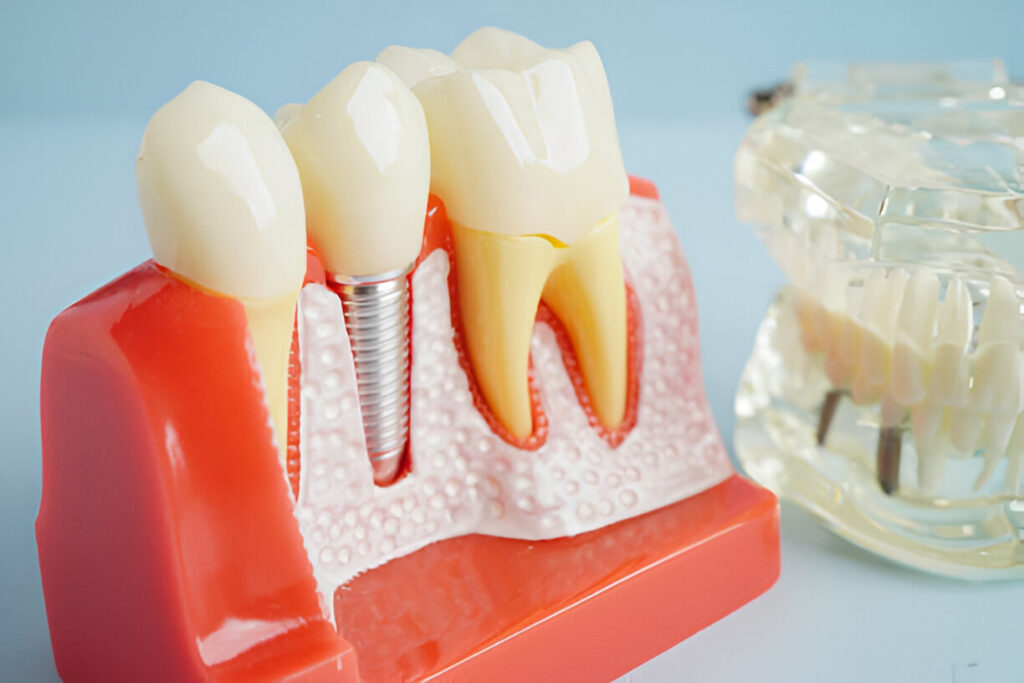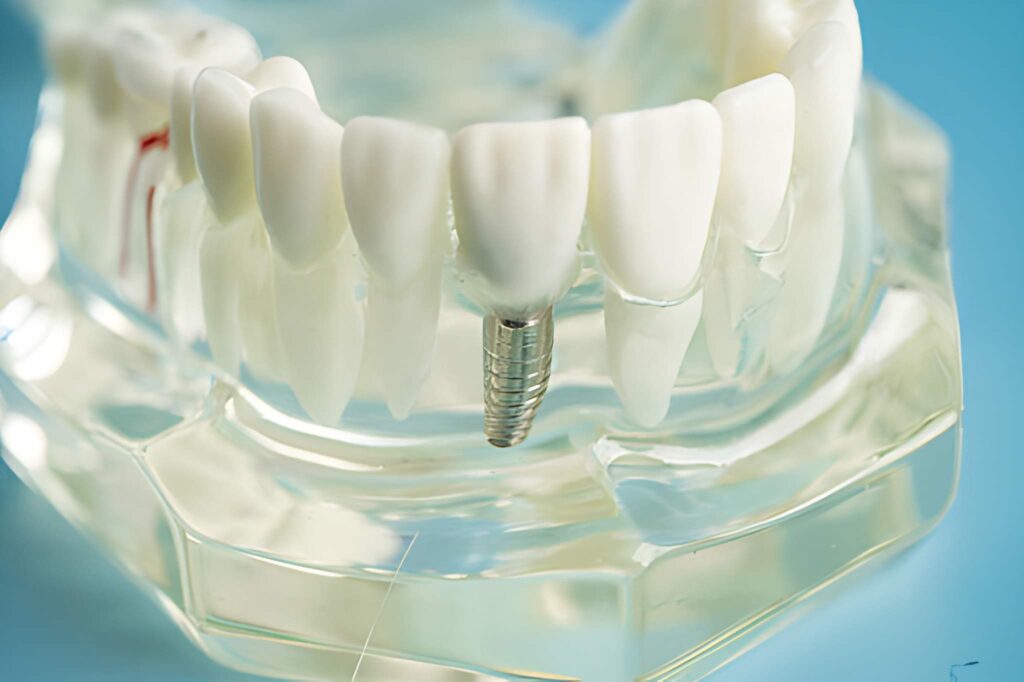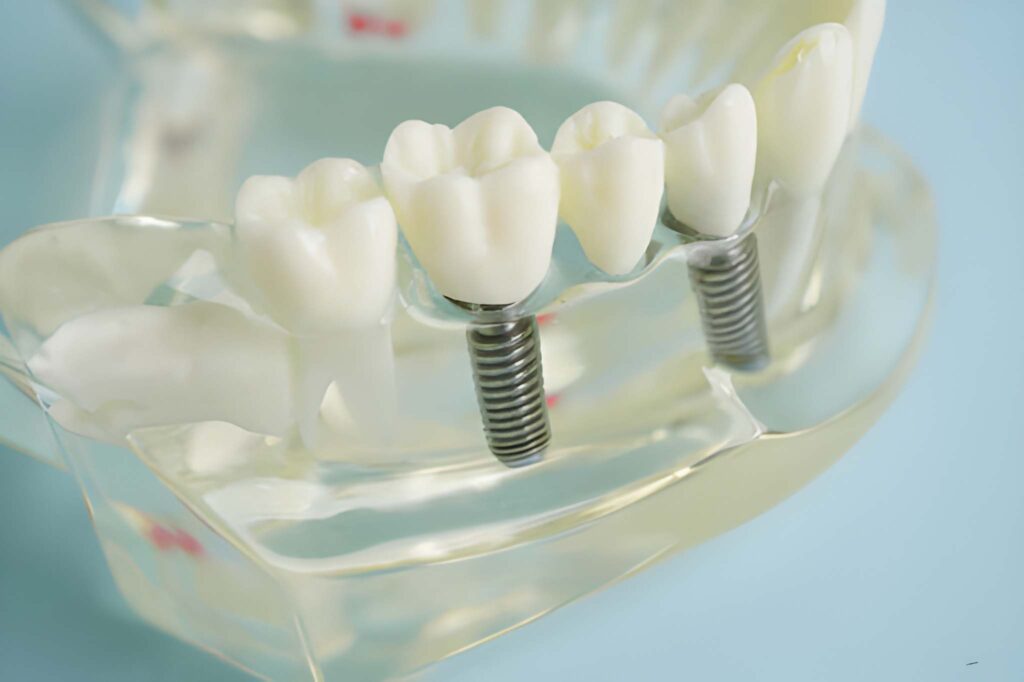Dental implants are a common and trusted way to replace missing teeth. They look natural, last many years, and help restore chewing and speech. A dental implant is made up of a metal post, usually titanium, that goes into the jawbone. This post acts like the root of a tooth. A crown or false tooth is then placed on top to complete the look.
Most people recover from dental implant surgery without any major side effects. However, a small number of patients report headaches. This article explains why these may happen and how to manage them.
Do Dental Implants Cause Headaches?
The short answer is no – dental implants themselves do not cause headaches. The titanium used is safe, and the implant is designed to work like a natural tooth. Still, some people feel mild to severe headaches after implant surgery. These are not caused by the implant itself, but by other related factors during or after the procedure.
Let’s explore the possible reasons behind these headaches and what you can do to avoid them.
Can i Get Dental implants if i Have Bone Loss
Possible Causes of Headaches After Dental Implant Surgery
1. Jaw Muscle Strain
After surgery, you may need to keep your mouth open for a long time. This can strain the jaw muscles and joints. The pressure in the jaw may lead to tension headaches, especially in the temples or behind the eyes. These headaches usually go away with rest or mild pain relief.
2. Misaligned Bite
If the implant is not perfectly placed, it can affect how your top and bottom teeth come together. This can create an uneven bite. Over time, this misalignment may cause extra pressure on your jaw, leading to headaches or even temporomandibular joint (TMJ) pain. An experienced NHS Dentist in Aberdeen can help identify and correct bite issues early, ensuring your implant fits properly and reduces the risk of discomfort.
3. Nerve Irritation
The face has many small nerves. If the implant is placed too close to a nerve or presses against one, it may cause pain. In some cases, this can lead to facial discomfort or recurring headaches. Nerve-related headaches may feel sharp, tingling, or burning.
Can Dental Implants Affect Your Eyes?
4. Sinus Complications
When implants are placed in the upper jaw, they may sit close to the sinus cavity. If the sinus is disturbed during surgery or if the implant extends into it, sinus pressure and headaches can occur. This type of headache often feels like pressure around the cheeks, forehead, or eyes.
5. Bone Grafts and Sinus Lifts
Sometimes, extra procedures like bone grafts or sinus lifts are needed before an implant. These help prepare the jawbone. However, they can also increase the risk of post-surgical inflammation or nerve irritation, both of which can cause headaches.
Can Dental Implants Restore Face Shape?
6. Allergic Reaction to Titanium
Titanium is the most common material used in dental implants. It is known to be highly biocompatible. Still, in very rare cases, people may have a mild allergy to titanium. This can cause symptoms such as swelling, discomfort, or headaches triggered by the body’s immune response.
How to Know If Your Headache Is Implant-Related
Not all headaches are caused by dental issues. But if you begin to feel headaches shortly after implant surgery, it’s good to pay attention to:
- Pain near the implant site
- Tightness in the jaw or temples
- Headaches that get worse when chewing
- Facial pressure or sinus pain
- Symptoms lasting more than a few days
If you experience severe or ongoing pain, speak to your dentist. It may be a sign of an issue that needs attention.
Can I Get Dental Implants Years After an Extraction
How to Manage Headaches After Implant Surgery
If your headache is mild and occurs just after surgery, rest and hydration may help. Here are a few simple steps to ease the discomfort:
- Take over-the-counter pain relief as advised by your dentist
- Avoid chewing hard or sticky foods until the area heals
- Use a cold compress on the temples or jaw
- Massage your temples or neck muscles gently
- Get plenty of sleep and avoid stress
If the pain lasts more than a week or becomes worse, you should return to the clinic for a check-up. Your dentist may adjust your bite, recommend further scans, or refer you to a specialist if needed.
Can I Drink Alcohol After Dental Implant?
Can You Prevent Headaches from Dental Implants?
While it’s not always possible to prevent every side effect, there are ways to reduce your risk:
- Choose a qualified and experienced dental surgeon
- Get full scans and imaging before surgery to plan placement carefully
- Follow all post-surgery care instructions
- Rest and avoid strenuous activity for the first few days
- Report any discomfort or changes early
Taking these steps will help you heal faster and lower the risk of post-surgery issues, including headaches.
Can Dental Implants Cause Ear Pain?
Final Thoughts
Dental implants are a safe and long-term solution for missing teeth. Most people enjoy years of comfort and function with their implants. Headaches after implant surgery are rare and usually mild. They often come from muscle strain, nerve pressure, or bite changes—not the implant itself.
If you experience headaches after surgery, speak with your dentist. With the right care and early treatment, most issues can be resolved quickly. A proper fit, careful planning, and good aftercare are the best ways to ensure success with your dental implant and avoid unnecessary pain.
Frequently Asked Question
Is it normal to have a headache a few days after dental implant surgery?
Yes, it can be normal. Mild headaches may occur due to jaw strain, post-surgical swelling, or medication. These usually ease within a few days. If pain worsens or lasts more than a week, contact your dentist to rule out infection, nerve irritation, or implant misalignment.
Can a dental implant affect my sinuses and cause pressure?
Yes, implants placed in the upper jaw near the sinus cavity can sometimes cause sinus pressure or headaches. This happens if the implant slightly disrupts the sinus lining. Proper planning and imaging by your dental surgeon can help prevent this issue from occurring.
Are headaches from dental implants long-lasting?
No, most headaches linked to dental implants are temporary. They typically result from muscle strain or bite adjustment and fade with healing. However, if a nerve is involved or the implant is misaligned, symptoms may last longer and need professional evaluation.
Can I still get an implant if I suffer from migraines?
Yes, most migraine sufferers can safely receive dental implants. However, your dentist should be aware of your condition. If migraines are triggered by jaw tension or stress, a detailed treatment plan will help prevent post-surgical discomfort or bite-related issues that may worsen symptoms.
What should I do if I feel head pressure after an implant?
Start by resting, drinking water, and avoiding hard foods. Try using a cold pack on your jaw or temples. If the pressure persists beyond a few days or gets worse, book a dental review. It could be linked to bite alignment or nerve sensitivity near the implant.
Visit Holburn Dental and Implant Centre for expert dental implant services in Aberdeen




